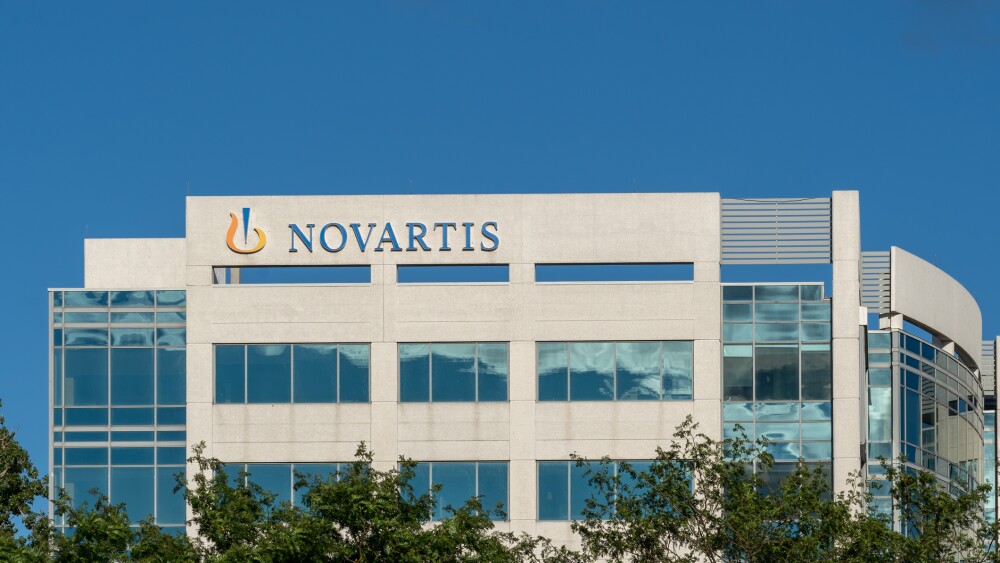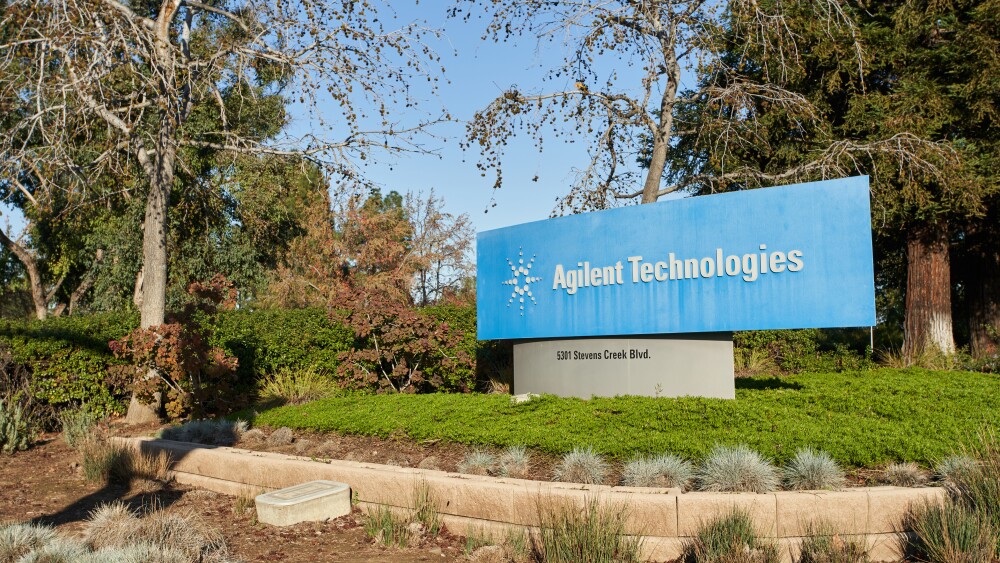Medicenna Therapeutics Corp. presented updated clinical results highlighting significant survival benefit versus a propensity score balanced EC arm, in the Phase 2b Study of bizaxofusp (aka MDNA55; an Empowered Superkine targeting the IL-4R) in unresectable rGBM at the 2024 Annual Meeting of the American Society of Clinical Oncology (ASCO) held in Chicago, IL, on June 1st, 2024.
Single treatment with bizaxofusp achieved significant survival benefit (mOS of 13.5 vs. 7.2 months, p=0.009) and reduced risk of death by almost half (hazard ratio: 0.54, 95% confidence interval: 0.34-0.83) versus a propensity balanced external control (EC) arm irrespective of IL-4 receptor (IL-4R) expression in unresectable recurrent glioblastoma (rGBM) patients in the Phase 2b Study
Bizaxofusp increased median overall survival (mOS) by 88% (p = 0.009) and improved overall survival at 1 and 2 years by 180% and 290%, respectively
Tumor control was associated with a significant increase in mOS following treatment with bizaxofusp, and may be an early surrogate of survival benefit
TORONTO and HOUSTON, June 03, 2024 (GLOBE NEWSWIRE) -- Medicenna Therapeutics Corp. (“Medicenna” or the “Company”) (TSX: MDNA, OTCQB: MDNAF), a clinical-stage immunotherapy company focused on the development of Superkines, presented updated clinical results highlighting significant survival benefit versus a propensity score balanced EC arm, in the Phase 2b Study of bizaxofusp (aka MDNA55; an Empowered Superkine targeting the IL-4R) in unresectable rGBM at the 2024 Annual Meeting of the American Society of Clinical Oncology (ASCO) held in Chicago, IL, on June 1st, 2024.
“Bizaxofusp represents a promising novel approach for targeted delivery of a potent therapeutic payload in rGBM, a uniformly fatal form of brain cancer that does not have an approved standard of care,” said Dr. Fahar Merchant, President and CEO of Medicenna. “These updated Phase 2b analysis reflect the planned design of a Phase 3 registration trial where patients with unresectable rGBM will be treated with bizaxofusp at the high dose irrespective of IL-4R expression. These updated data are based on a larger pool of patients when compared to our earlier results and show, for the first time, that the improvement in survival in the bizaxofusp arm was statistically significant when compared to a well-balanced EC arm. We are encouraged by these findings as we pursue partnership opportunities, plan to seek Breakthrough Therapy Designation, and secure alignment with the EMA for the Phase 3 trial design.”
Significant Survival Benefit vs. Propensity Score Balanced EC Arm Irrespective of IL-4R Expression
The multi-center, open-label, single-arm Phase 2b study of bizaxofusp enrolled and treated 44 evaluable patients with rGBM following surgery or radiotherapy ± adjuvant therapy or other experimental therapies. A separate study collected rGBM data from 81 unresectable rGBM patients who had contemporaneously received treatment with other therapies at major clinical centres and was used to establish a matched EC arm. The blinded survival data from the propensity score balanced EC arm (established by matching bizaxofusp-treated population based on 11 different prognostic factors, including IL-4R expression levels as a prognostic factor) were then used as a control arm versus survival data from the Phase 2b bizaxofusp trial, as reported previously.
The updated analysis, presented at ASCO 2024, builds upon the prior Phase 2b data by excluding IL-4R expression as a prognostic factor in propensity score balancing, thereby increasing the number of bizaxofusp and EC arm patients eligible for analysis. Earlier studies had excluded these patients due to lack of tumor tissue available for IL-4R expression analysis. These expanded data demonstrate that a single treatment of bizaxofusp significantly increased mOS by 88% (13.5 vs. 7.2 months, p=0.009), reduced risk of death by approximately half (HR: 0.54, 95% confidence interval: 0.34-0.83), and improved OS by 180% at Year 1 and 290% at Year 2.
These findings imply that bizaxofusp provides a significant survival benefit irrespective of IL-4R expression, thereby negating the need for a companion diagnostic in a commercial setting and broadening the availability of patient data for the EC arm planned for the Phase 3 trial.
Tumor Control as a Surrogate for Improved mOS
The analysis presented at ASCO 2024 also demonstrates that patients who showed tumor control, as assessed by mRANO/RANO 2.0, following a single treatment with bizaxofusp had significantly longer mOS when compared to patients with no tumor control (16.7 vs. 8.5 months, p=0.017). These findings are of importance as prior therapies developed for rGBM have not been able to establish a correlation between tumor control and survival outcomes. These results show that tumor control following bizaxofusp treatment could provide early evidence of survival benefit in future studies.
A copy of the poster and a related slide deck have been posted to the “Scientific Presentations” page of Medicenna’s website.
About Bizaxofusp
Bizaxofusp (formerly known as MDNA55) is Medicenna’s IL-4 Empowered Superkine that has been studied in 5 clinical trials in over 130 patients, including a Phase 2b trial in patients with recurrent glioblastoma (rGBM), the most common and uniformly fatal form of brain cancer. Results from the Phase 2b study, which were published in the journal Neuro-Oncology® (Sampson, et al. June 2023), demonstrated that bizaxofusp more than doubled the median survival in end-stage rGBM patients when compared to a well-matched external control arm. Medicenna has obtained agreement from the U.S. FDA on the study design for the registrational Phase 3 LIGHT™ (Localized Infusion for the treatment of recurrent Glioblastoma with High-dose bizaxofusp Therapy) trial and the Company is actively pursuing potential partnerships to conduct the LIGHT trial, and if approved, bizaxofusp’s commercialization in key global markets. Bizaxofusp has been granted FastTrack and Orphan Drug status from the FDA and FDA/EMA, respectively.
About Medicenna
Medicenna is a clinical-stage immunotherapy company focused on developing novel, highly selective versions of IL-2, IL-4 and IL-13 Superkines and first-in-class Empowered Superkines. Medicenna’s long-acting IL-2 Superkine, MDNA11, is a next-generation IL-2 with superior affinity toward CD122 (IL-2 receptor beta) and no CD25 (IL-2 receptor alpha) binding, thereby preferentially stimulating cancer-killing effector T cells and NK cells. Medicenna’s IL-4 Empowered Superkine, bizaxofusp (formerly MDNA55), has been studied in 5 clinical trials enrolling over 130 patients, including a Phase 2b trial for recurrent GBM, the most common and uniformly fatal form of brain cancer. Bizaxofusp has obtained FastTrack and Orphan Drug status from the FDA and FDA/EMA, respectively. Medicenna’s early-stage BiSKITs™ (Bifunctional SuperKine ImmunoTherapies) and the T-MASK™ (Targeted Metalloprotease Activated SuperKine) programs are designed to enhance the ability of Superkines to treat immunologically “cold” tumors.
For more information, please visit www.medicenna.com, and follow us on Twitter and LinkedIn.
Forward-Looking Statements
This news release contains forward-looking statements within the meaning of applicable securities laws. Forward-looking statements include, but are not limited to, express or implied statements regarding the future operations of the Company, estimates, plans, strategic ambitions, partnership activities and opportunities, objectives, expectations, opinions, forecasts, projections, guidance, outlook or other statements that are not historical facts, such as statements on the Company’s clinical performance and potential of MDNA11 and bizaxofusp (MDNA55) as well as the statements relating to the event that the Company is planning to hold report on new clinical data from the ongoing Phase 1/2 ABILITY-1 Study evaluating MDNA11. Drug development and commercialization involve a high degree of risk, and only a small number of research and development programs result in commercialization of a product. Results in early-stage clinical studies may not be indicative of full results or results from later stage or larger scale clinical studies and do not ensure regulatory approval. You should not place undue reliance on these statements or the scientific data presented. Forward-looking statements are often identified by terms such as “will”, “may”, “should”, “anticipate”, “expect”, “believe”, “seek”, “potentially” and similar expressions. Forward-looking statements are based on a number of assumptions believed by the Company to be reasonable at the date of this news release. Although the Company believes that the expectations reflected in such forward-looking statements are reasonable, there can be no assurance that such statements will prove to be accurate. These statements are subject to certain risks and uncertainties and may be based on assumptions that could cause actual results and future events to differ materially from those anticipated or implied in such statements. Important factors that could cause actual results to differ materially from the Company’s expectations include the risks detailed in the latest Annual Report on Form 20-F of the Company and in other filings made by the Company with the applicable securities regulators from time to time in Canada.
The reader is cautioned that assumptions used in the preparation of any forward-looking information may prove to be incorrect. Events or circumstances may cause actual results to differ materially from those predicted, as a result of numerous known and unknown risks, uncertainties, and other factors, many of which are beyond the control of the Company. The reader is cautioned not to place undue reliance on any forward-looking information. Such information, although considered reasonable by management, may prove to be incorrect and actual results may differ materially from those anticipated or implied in forward-looking statements. Forward-looking statements contained in this news release are expressly qualified by this cautionary statement. The forward-looking statements contained in this news release are made as of the date hereof and except as required by law, we do not intend and do not assume any obligation to update or revise publicly any of the included forward-looking statements.
This news release contains hyperlinks to information that is not deemed to be incorporated by reference in this news release.
Investor and Media Contact:
Christina Cameron
Investor Relations, Medicenna Therapeutics
ir@medicenna.com
(647) 953-0673





